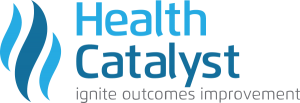UPMC has expanded use of Health Catalyst products to quality improvement initiatives
Health Catalyst recently received a valuation of more than $1 billion — highlighting the UPMC Enterprises portfolio company’s success helping health systems gain insights from their data.
The valuation propelled Health Catalyst to “unicorn” status, a rare category for startup companies in health care. Health Catalyst is one of just 24 other health care-related startups, according to CB Insights’ Global Unicorn tracker.

Health Catalyst attained the $1 billion valuation after UPMC and a slate of other investors participated in a $100 million Series F and debt funding round earlier this year — underscoring investors’ confidence that the company will continue expanding its technology and services offerings for health care transformation.
The company will use the additional capital to continue developing its technology and expertise as it offers health systems a path to analyze their performance, and make measurable improvement in clinical, financial, and operational areas.
Improving outcomes and quality at UPMC
As with all portfolio companies, UPMC is more than an investor in Health Catalyst. UPMC has been a customer of the company for several years. In one of its earliest projects at UPMC, Health Catalyst’s CORUS Suite was used to help the health system get more out of its data by implementing activity-based costing.
Health Catalyst and UPMC identified a gap in the market for accurate and meaningful cost data, a fundamental necessity for surviving the pending shift from fee-for-service to value-based reimbursement. Together they developed CORUS: Activity-Based Costing, a next-generation cost accounting system, to deliver clinical, operational and financial information to the front lines. The system was built on costing methodologies and processes developed at UPMC and leverages Health Catalyst’s platform to deliver patient-level costing that avoids the pitfalls of legacy costing methodologies.
The CORUS Suite provided almost immediate insights, including the ability to review detailed and actionable data across its analytics environment, support service line reporting, contract modeling, and clinical process improvements. These insights were used to help improve outcomes — reducing length of stay for surgical patients — and realize a $3 million savings for specific surgical services. UPMC also realized $15 million through supply, drug, and pharmaceutical reduction initiatives.
Since then, UPMC has expanded the use to other areas, including at UPMC Enterprises and the Wolff Center at UPMC, which focuses on quality improvement initiatives.
At the Wolff Center, Health Catalyst is helping to analyze the vast amounts of patient data to address the issue of central line infections. Both mortality rates and cost associated with these infections are high even though the issue is preventable when proper adherence to guidelines is followed. Health Catalyst is working to better identify those patients who have an active line, for how many days, and whether a specific patient is overdue for critical maintenance activities. Although the program has only been implemented in specific facilities, feedback and results have already been overwhelmingly positive.
At UPMC Enterprises, Health Catalyst is working in a number of ways to address everything from patient experience and readmissions to API integration and data extraction.
“Health Catalyst has been a great partner since day one and a company we’ve consistently turned to when it comes to finding new ways to analyze and act on our data,” said Tal Heppenstall, President of UPMC Enterprises. “We expect that relationship to continue to grow and are very proud of the company they’ve become.”
Using data to transform health care
Like most startups, Health Catalyst started small but with big ambitions. The company was focused on figuring out how to use technology to unify data to drive change and quality improvements. The team included a range of health care veterans who had faced several data and analytics problems throughout their careers and had joined forces to develop a solution. For more than a decade, the team collaborated with renowned researcher, Dr. David A. Burton, known for revolutionizing clinical process models using analytics. Together, they worked to develop a data warehouse that could solve the complex and unique challenges facing health care data.
They quickly learned that the predominant approach to data modeling just wouldn’t work for health care, and set out to create a new solution now known as The Health Catalyst Data Operating System (DOS™). DOS combines features of data warehousing, clinical data repositories, and health information exchanges (HIEs) to integrate real-time, granular data into a single computing ecosystem. DOS is vendor-agnostic, unlocking data trapped in diverse information systems that previously could not communicate with each other and separately lack the functionality needed to yield analytical insights.
Surging growth
This approach has helped Health Catalyst grow from serving just one client in its early days to being used by more than 125 health systems, physician practices, and healthcare information exchanges. Today, products are used to span a range of hospital needs, helping to solve clinical, financial, and operational challenges.
Although the company has experienced positive growth throughout its history, 2018 was a banner year. Not only did Health Catalyst see a more than 65 percent increase in annual recurring revenue, it also grew more than 80 percent in gross profits. That was due primarily to the addition of 16 new customers – the most throughout the company’s 10-year history. Client growth led to company growth, adding more than 200 team members to end the year with over 725 team members throughout the US.
More importantly, Health Catalyst has helped customers realize more than 450 results with improvements since 2016.
Learn more about Health Catalyst at https://www.healthcatalyst.com/.



